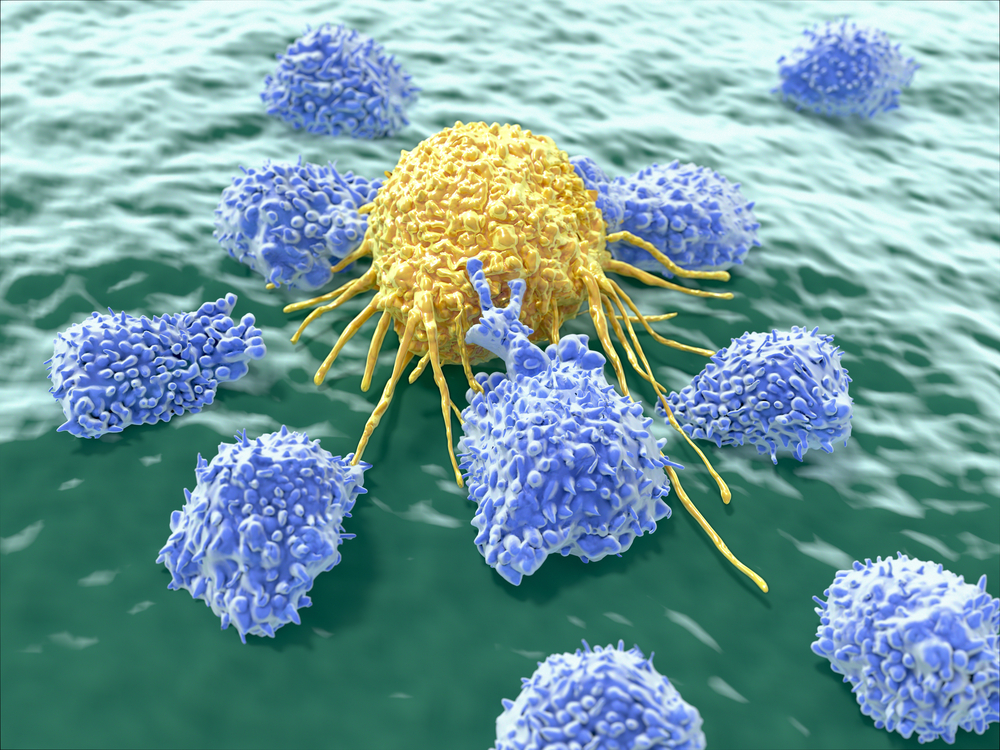CAR T-cells Targeting Integrin β7 Protein Show Promise in Countering Multiple Myeloma Cells
Written by |

A Japanese study has found that an active structure of the protein integrin β7 is specific to multiple myeloma cells, suggesting that it could be a target for CAR T-cell therapy.
The study, “The activated conformation of integrin β7 is a novel multiple myeloma–specific target for CAR T cell therapy,” was published in the journal Nature Medicine.
Monoclonal antibodies (mAb) have emerged as promising tools in cancer therapy. The use of T-cells, which are the killers of our immune system, to express chimeric antigen receptors (CARs) has become increasingly popular in the last few years.
CAR T-cells are developed through a process that combines a gene for an antibody with a gene for a cell surface receptor. This allows the production of a receptor, expressed on the surface of T-cells, that specifically targets a protein found on cancer cells.
Unfortunately, identifying the proteins to target on cancer cells is difficult due to the vast diversity of proteins expressed within cells of the same tumor and between tumors.
This led Japanese researchers to look beyond the type of protein, at modifications that occur to these proteins when they are on the cell’s surface. Some of these modifications include a process called glycosylation, which involves the attachment of a sugar molecule to the protein, or conformation changes, which refer to different structures of the protein.
“We applied this strategy to identify novel therapeutic targets for multiple myeloma (MM), a cancer that forms in a type of white blood cell called a plasma cell,” Naoki Hosen, lead author of the study, said in a press release. “Despite advances in MM treatment, relapse remains common. As such, there is an ongoing need for new therapeutic approaches, including mAb-based therapies.”
Researchers used various myeloma cell lines and screened more than 10,000 antibodies to see which ones would react against the cells. They discovered that one particular antibody, called MMG49, identified a specific conformation of the protein integrin β7 that is present on myeloma cells.
This particular antibody was only able to target integrin β7 in its active conformation. Because integrin β7 was both highly expressed and in the active conformation on most myeloma cells, researchers developed MMG49 CAR T-cells using a fragment from the MMG29 monoclonal antibody.
Treatment with the MMG49 mAB had significant effects on myeloma cells. Because these T-cells were specific to the myeloma cells, there was no damage to normal cells.
“Our results also demonstrate that the active conformer of integrin β7 can serve as an immunotherapeutic target against MM, even though the expression of the protein itself is not specific to MM,” study co-author Yukiko Matsunaga said.
The authors noted that while a particular protein might not be specific to a cancer, its conformation on the cell surface might. Therefore, the authors concluded, “cancer immunotherapeutic targets may yet be identified in many cell-surface proteins that undergo conformational changes, even if the expression of the proteins themselves is not cancer specific.”



